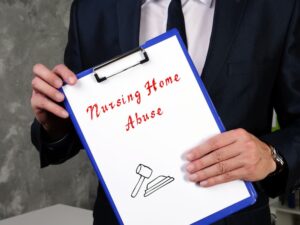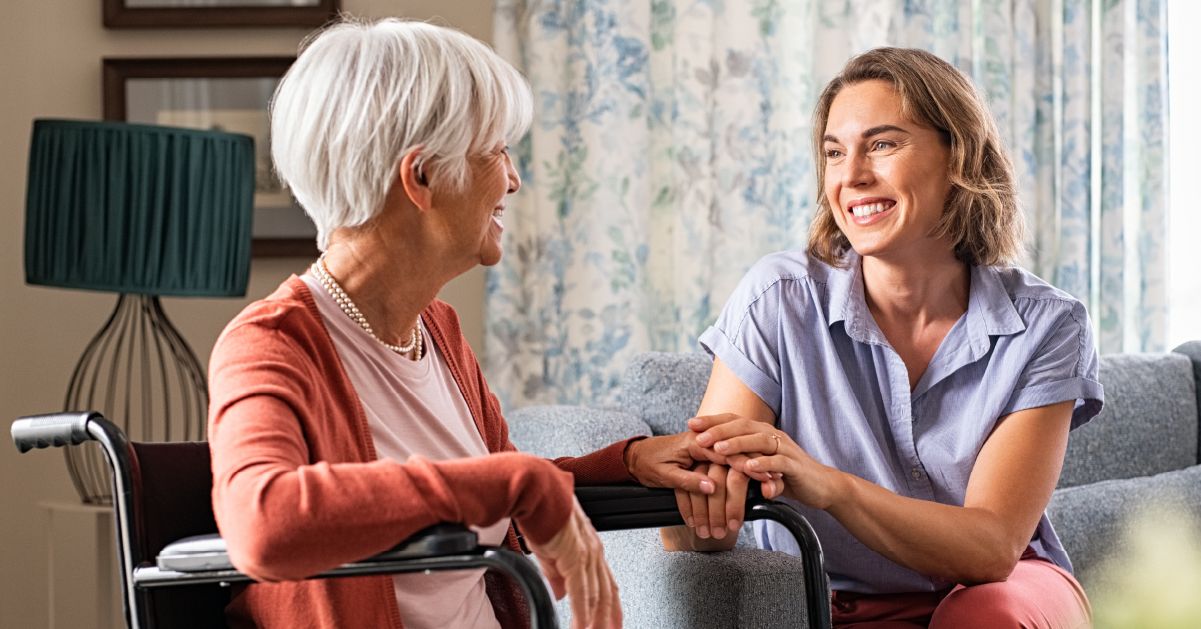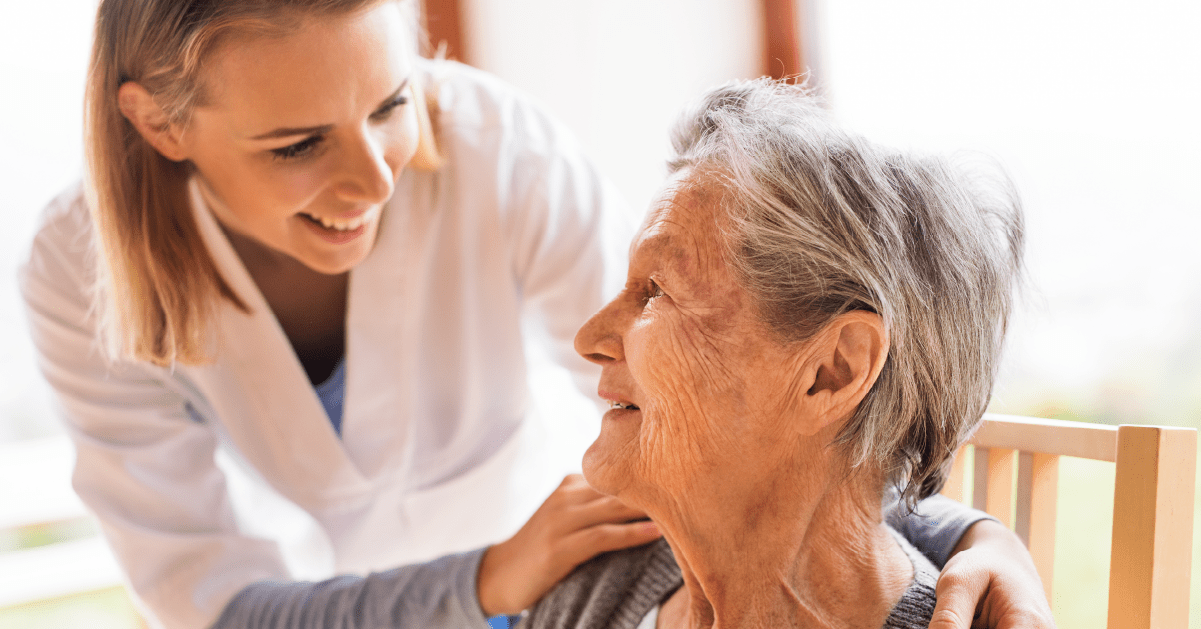We entrust our loved ones to the care of nursing homes and long-term care facilities, and we expect the staff will look out for their well-being and safety. However, the unfortunate reality is that nursing home abuse and neglect occur. It’s a deeply concerning issue that can affect our vulnerable elders, leaving them in distressing situations.
In this blog post, we aim to shed light on the critical topic of nursing home abuse and the signs that signal the need for a nursing home abuse lawyer. By understanding the red flags and seeking appropriate legal assistance, you can take proactive steps to protect your loved ones and safeguard their rights and dignity in these care facilities. Read on to learn about the signs that should never be ignored and how you can ensure justice is served when elder abuse is suspected.
12 Signs You Need a Nursing Home Abuse Lawyer

If you suspect that a loved one residing in a nursing home is experiencing abuse or neglect, it’s crucial to take action to protect their rights and well-being. A nursing home abuse lawyer can be a valuable resource in such cases. Here are some signs that may indicate you need a nursing home abuse lawyer:
1. Unexplained Injuries
If your loved one has unexplained injuries such as bruises, fractures, cuts, or burns, it could be a sign of physical abuse. Document these injuries with photographs and seek legal advice.
2. Rapid Decline in Health
If your family member’s health rapidly deteriorates without a clear medical reason, it could be due to neglect, inadequate care, or even medication errors in the nursing home.
3. Emotional or Behavioral Changes
Sudden changes in behavior, mood, or emotional well-being, such as withdrawal, depression, or anxiety, may indicate emotional or psychological abuse.
4. Medication Errors
Nursing home staff are responsible for administering medications correctly. If there are instances of medication errors that harm your loved one, consult a lawyer.
5. Dehydration or Malnutrition
Signs of malnutrition, dehydration, or weight loss can be indicative of neglect in terms of proper nutrition and hydration.
6. Bedsores
Bedsores (pressure ulcers) are preventable injuries that can develop from inadequate care. If your loved one develops bedsores while in a nursing home, this could be a sign of neglect.
7. Poor Hygiene and Living Conditions
If the facility fails to maintain cleanliness, sanitary conditions, and general hygiene, it’s a red flag for neglect.
8. Unexplained Financial Changes
If your loved one’s financial assets or personal belongings go missing or are mismanaged while in the nursing home, financial exploitation could be to blame.
9. Staff Refusal to Allow Visitation
If the nursing home staff consistently restricts your access to your loved one or denies you the opportunity to see them, this could be an attempt to hide abusive or neglectful behavior.
10. Resident Complaints
If your loved one or other residents express concerns about their treatment or conditions, it’s important to take these complaints seriously and consult an attorney to investigate further.
11. Inadequate Response from the Nursing Home
If you’ve brought concerns to the attention of the nursing home management and they fail to address the issues or take corrective action, legal intervention may be necessary.
12. Unexplained Death
If your loved one passes away under suspicious or unexplained circumstances while in a nursing home, it’s essential to investigate potential abuse or neglect as a cause.
What is Nursing Home Abuse?
Nursing home abuse refers to the mistreatment, neglect, or harm inflicted upon residents in long-term care facilities, such as nursing homes, assisted living centers, or skilled nursing facilities. This type of abuse can take various forms, and it is a serious concern, as it affects vulnerable elderly individuals who may be physically or mentally unable to defend themselves or seek help. Nursing home abuse can encompass the following:
- Physical Abuse: This involves the intentional use of force or violence that results in physical harm, pain, or injury to a nursing home resident. It can include hitting, slapping, pushing, or any form of physical assault.
- Emotional or Psychological Abuse: Emotional abuse may involve verbal threats, humiliation, intimidation, or isolation, causing emotional distress, fear, or anxiety in the resident.
- Neglect: Neglect occurs when the nursing home staff fails to provide the necessary care, resulting in harm to the resident. This can include neglecting hygiene, nutrition, or medical needs.
- Sexual Abuse: Any non-consensual sexual contact with a resident, regardless of their age or cognitive abilities, constitutes sexual abuse. This is a grave violation of the resident’s rights.
- Financial Exploitation: Financial exploitation involves the improper or illegal use of an elderly resident’s financial resources, property, or assets by staff members or other residents.
- Medication Errors: Administering the wrong medication, incorrect dosages, or failing to provide prescribed medications can be a form of abuse, particularly if it causes harm to the resident.
- Resident-to-Resident Abuse: Abuse isn’t limited to staff; residents may also harm each other physically or emotionally in a nursing home setting.
Nursing home abuse is a violation of a resident’s rights and often goes unnoticed or unreported due to the resident’s vulnerability or fear. Detecting and addressing nursing home abuse is crucial to ensuring the safety and well-being of elderly residents. It’s important to be aware of the signs of abuse and take appropriate action if you suspect that a loved one or someone you know is a victim.
When Should I Contact a Nursing Home Abuse Lawyer?
Contacting a lawyer can be an important step in addressing the situation and seeking justice for your loved one. Here’s a general guideline on when to contact a lawyer in such cases:
- Immediate Safety: If you believe that your loved one is in immediate danger or requires urgent medical attention, prioritize their safety. Call 911 or the appropriate emergency services to address the immediate crisis.
- Gather Information: Before contacting a lawyer, gather as much information as you can about the suspected abuse. This may include photographs, medical records, witness statements, or any other evidence related to the abuse.
- Contact the Nursing Home: It’s advisable to reach out to the nursing home’s management or administration to report your concerns. Document this communication, including who you spoke with, what was discussed, and the date and time of the conversation.
- Contact Adult Protective Services: The New York State Department of Health, Division of Nursing Home and ICF/IID Surveillance is responsible for investigating complaints about resident abuse, neglect, and incidents in nursing homes in New York. You should call the Nursing Home Complaint Hotline at 1-888-201-4563.
- Consult an Attorney: After taking immediate steps to address the situation, you should consult an attorney who handles elder abuse or nursing home neglect cases. You don’t need all the evidence, but discussing your concerns with an attorney can help you understand your legal options and rights. They can advise you on the best course of action, whether negotiating with the nursing home, pursuing legal action, or both.
- Keep Records: Continue to document all interactions with the nursing home, relevant medical records, and any other information related to the case. This documentation can be crucial in building a legal case.
- Consider Moving Your Loved One: If the abuse is ongoing and your loved one’s safety is at risk, you may need to relocate them to a different nursing home or care facility.
Remember that each nursing home abuse case is unique, and the appropriate course of action may vary. It’s essential to consult with an experienced attorney who can provide guidance based on the specific circumstances of your situation. They can help you navigate the legal process and work to ensure that your loved one’s rights are protected and that those responsible for the abuse are held accountable.
What Will a Nursing Home Abuse Lawyer Do if I Suspect My Loved One is Being Abused?
If you suspect nursing home staff is abusing your loved one, taking action promptly to protect their rights and well-being is essential. A nursing home abuse lawyer can play a crucial role in addressing the situation. Here’s what a nursing home abuse lawyer can do if you suspect abuse:
- The lawyer will initiate an investigation into the allegations of abuse. This may involve gathering evidence, speaking with your loved one, interviewing witnesses, and examining medical records and facility documentation.
- Your lawyer will help you document all relevant information, including photographs of injuries, medical records, witness statements, and any other evidence that can support your case.
- The lawyer can help you report the abuse to the appropriate authorities, such as Adult Protective Services, to ensure your loved one’s safety and well-being.
- If the evidence supports a legal claim, the lawyer can help you file a lawsuit against the nursing home or responsible parties. This may be a personal injury or negligence claim seeking compensation for the harm your loved one has suffered.
- In many cases, nursing homes and their insurers may want to settle out of court. Your lawyer will negotiate on your behalf to achieve a fair settlement that compensates your loved one for their injuries and suffering.
- If the nursing home does not offer a fair settlement, the lawyer will take your case to court and represent your loved one in a lawsuit. They will present evidence, call witnesses, and argue your case before a judge and jury.
- Throughout the process, your lawyer serves as an advocate for your loved one, ensuring their rights are protected and that they receive the care and compensation they deserve.
- A nursing home abuse lawyer can also help take steps to prevent further abuse or neglect, such as seeking a court order to move your loved one to a safer facility or pursuing legal action to hold the nursing home accountable for their actions.
- The lawyer can provide guidance and support to help you understand the legal process, your rights, and what to expect as your case progresses.
It’s important to consult with a qualified nursing home abuse lawyer as soon as you suspect abuse to ensure that your loved one’s rights are protected and that those responsible for the abuse are held accountable. These lawyers specialize in elder abuse cases and have the expertise to navigate the legal complexities surrounding nursing home abuse.
Why You Should Contact a Long Island Nursing Home Abuse Lawyer

In a world where our loved one’s care and well-being are paramount, recognizing the signs of nursing home abuse is of utmost importance. If you notice any signs you need a nursing home lawyer, remember that your vigilance, advocacy, and awareness are essential to protect the rights and dignity of those who once cared for us.
When the signs are there, do not hesitate to seek the assistance of a nursing home abuse lawyer. By taking swift and deliberate action, you can ensure that the voices of the elderly residents who may suffer in silence are heard, and justice is served. Together, we can work towards safer, more compassionate environments for our cherished elders and hold those responsible for their mistreatment accountable. Consult a Long Island personal injury lawyer at Rosenberg & Gluck LLP today for a free and confidential consultation, and help protect your loved one’s rights and well-being.








